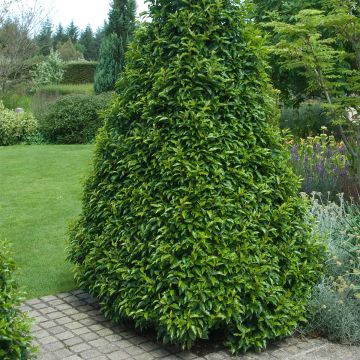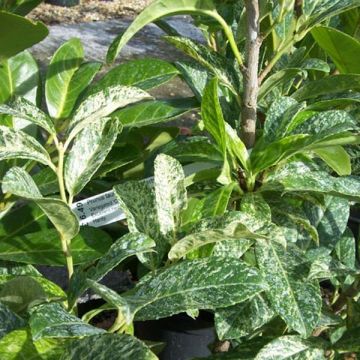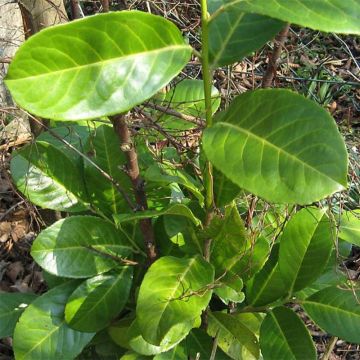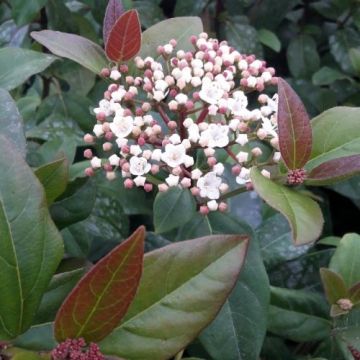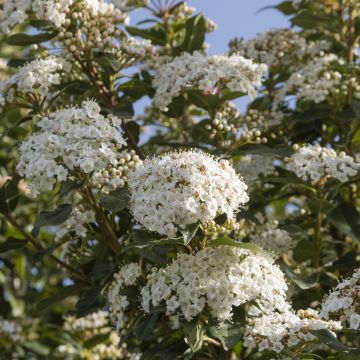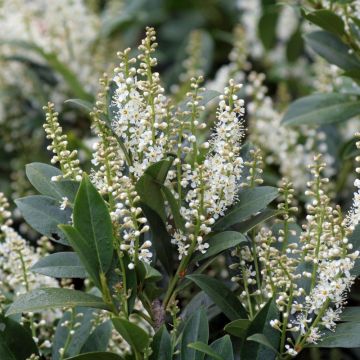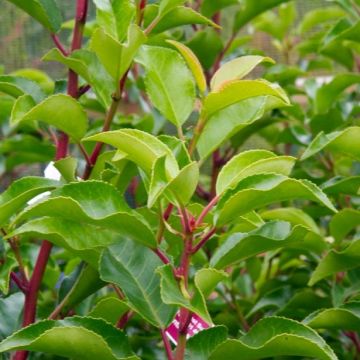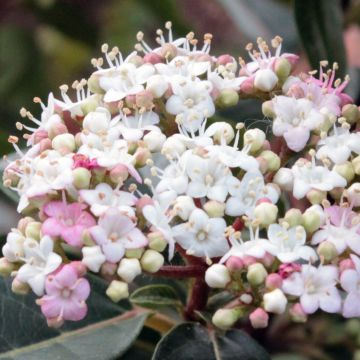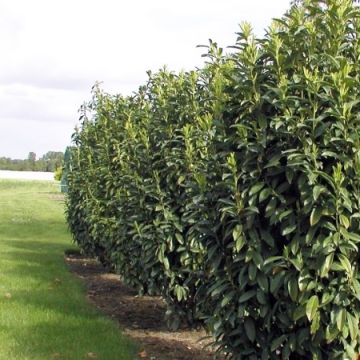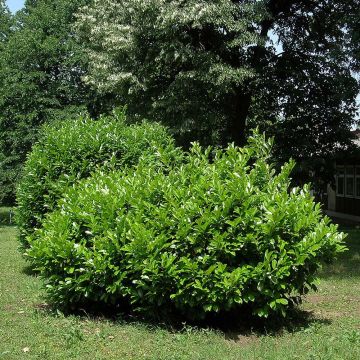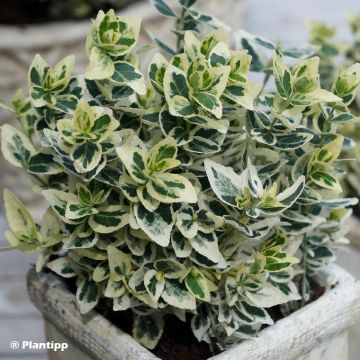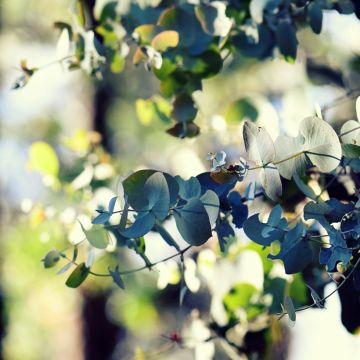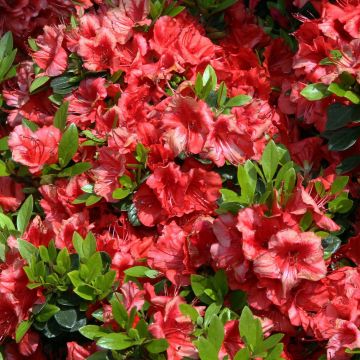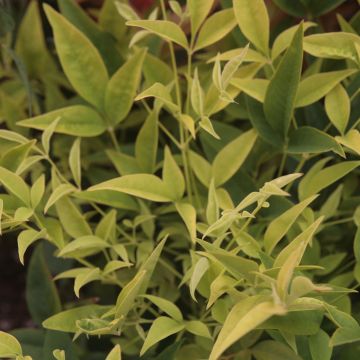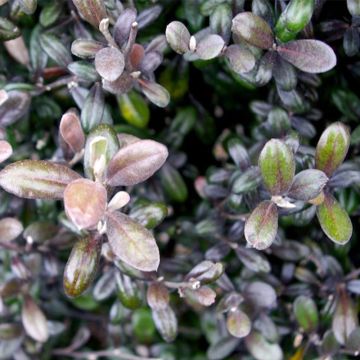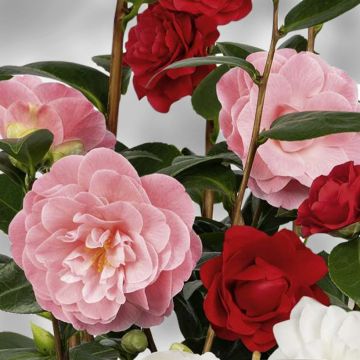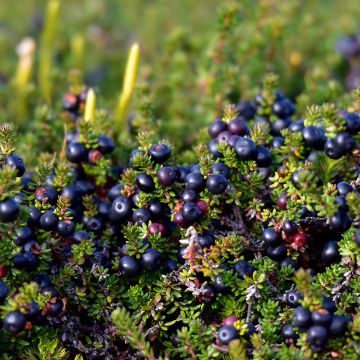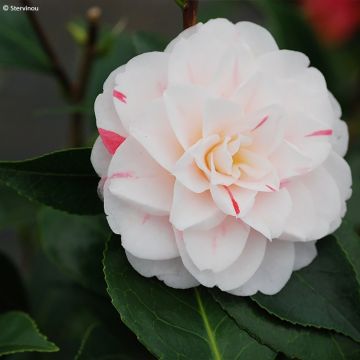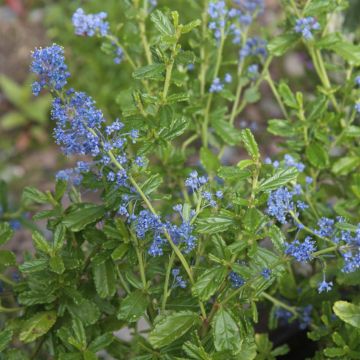Shipping country and language
Your country of residence may be:
Your country of residence is:
For a better user experience on our website, you can select:
Your shipping country:
Andorra
Austria
Belgium
Bulgaria
Canada
Chile
Croatia
Cyprus
Czechia
Denmark
Estonia
Finland
France
Germany
Greece
Hungary
Iceland
Ireland
Italy
Latvia
Lithuania
Luxembourg
Malta
Monaco
Netherlands
Poland
Portugal
Romania
Slovakia
Slovenia
Spain
Sweden
Switzerland
United Kingdom
We only deliver seed and bulb products to your country. If you add other products to your basket, they cannot be shipped.
Language:
French
German
Spanish
English
My Account
Hello
My wish lists
Plantfit
Log in / Register
Existing customer?
New customer?
Create an account to track your orders, access our customer service and, if you wish, make the most of our upcoming offers.
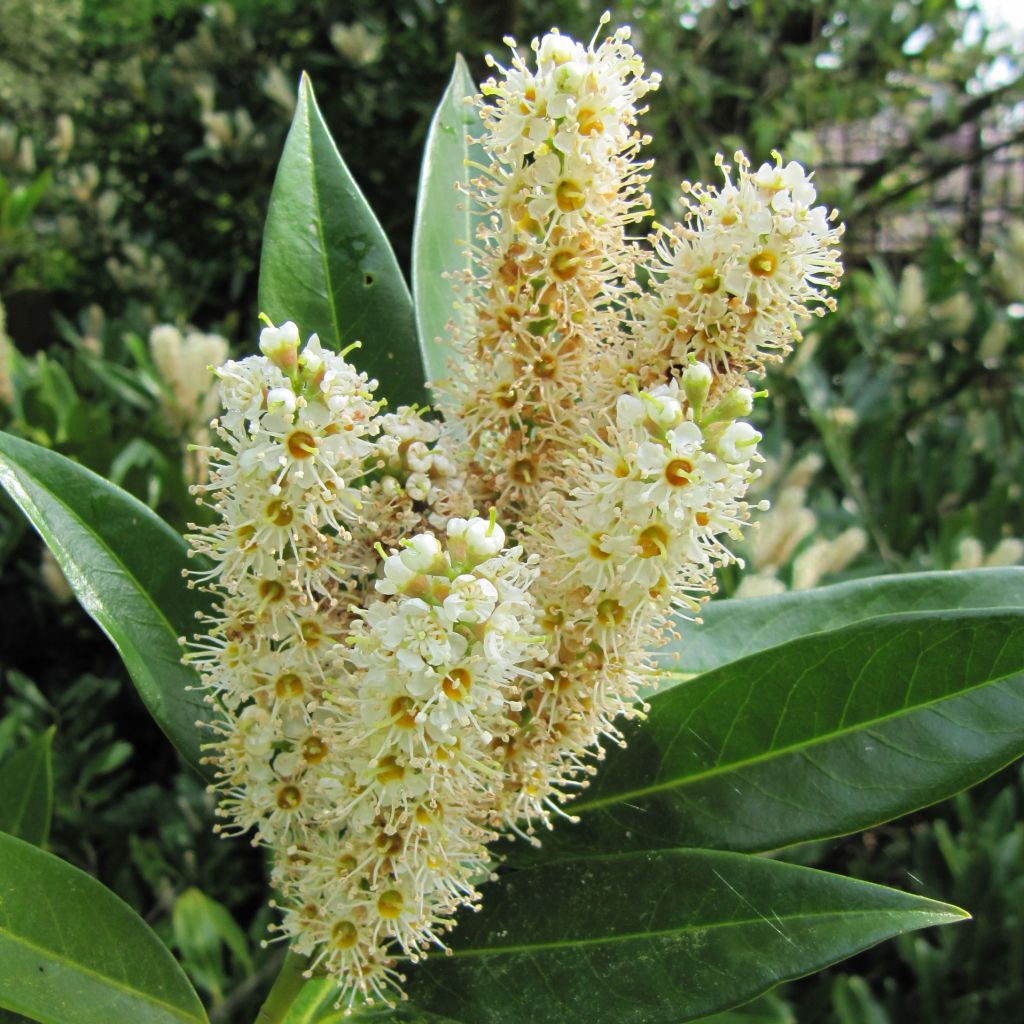

Prunus laurocerasus Otto Luyken - Cherry Laurel
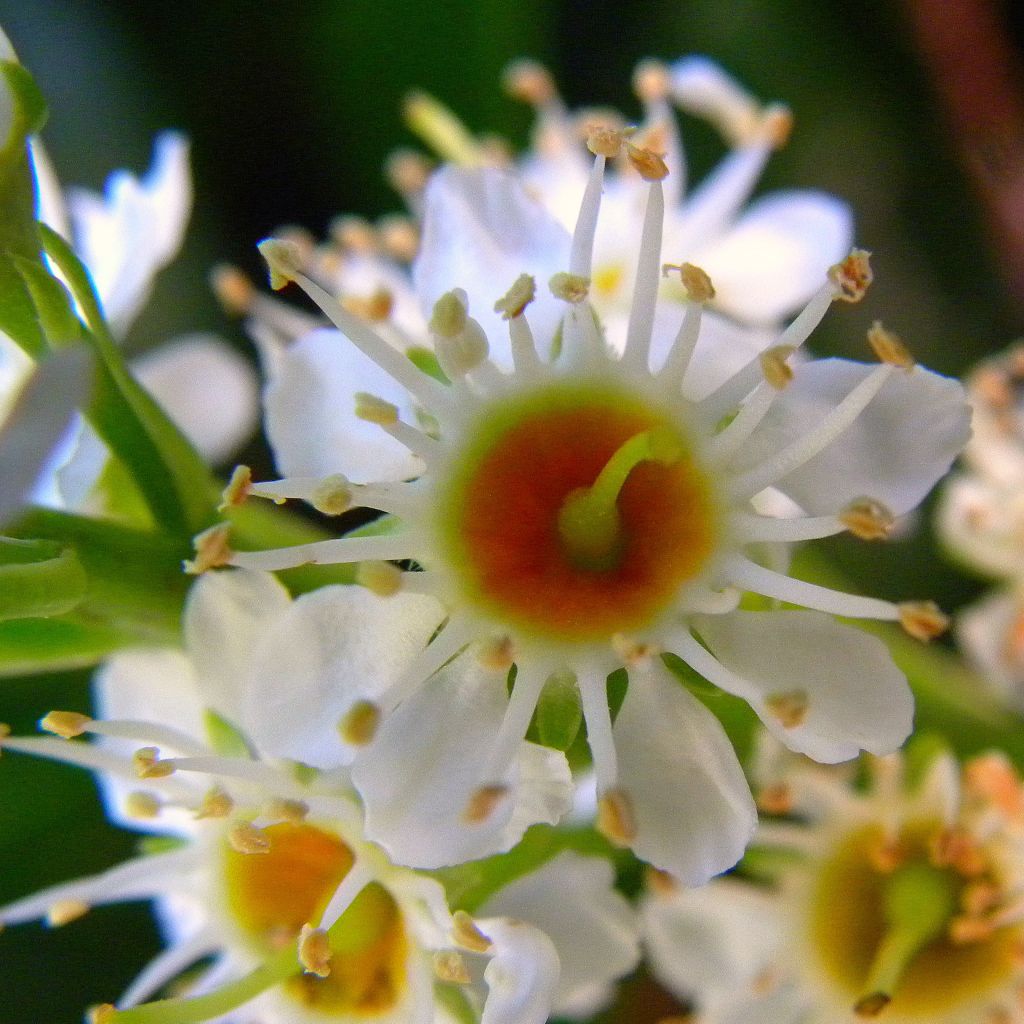

Prunus laurocerasus Otto Luyken - Cherry Laurel
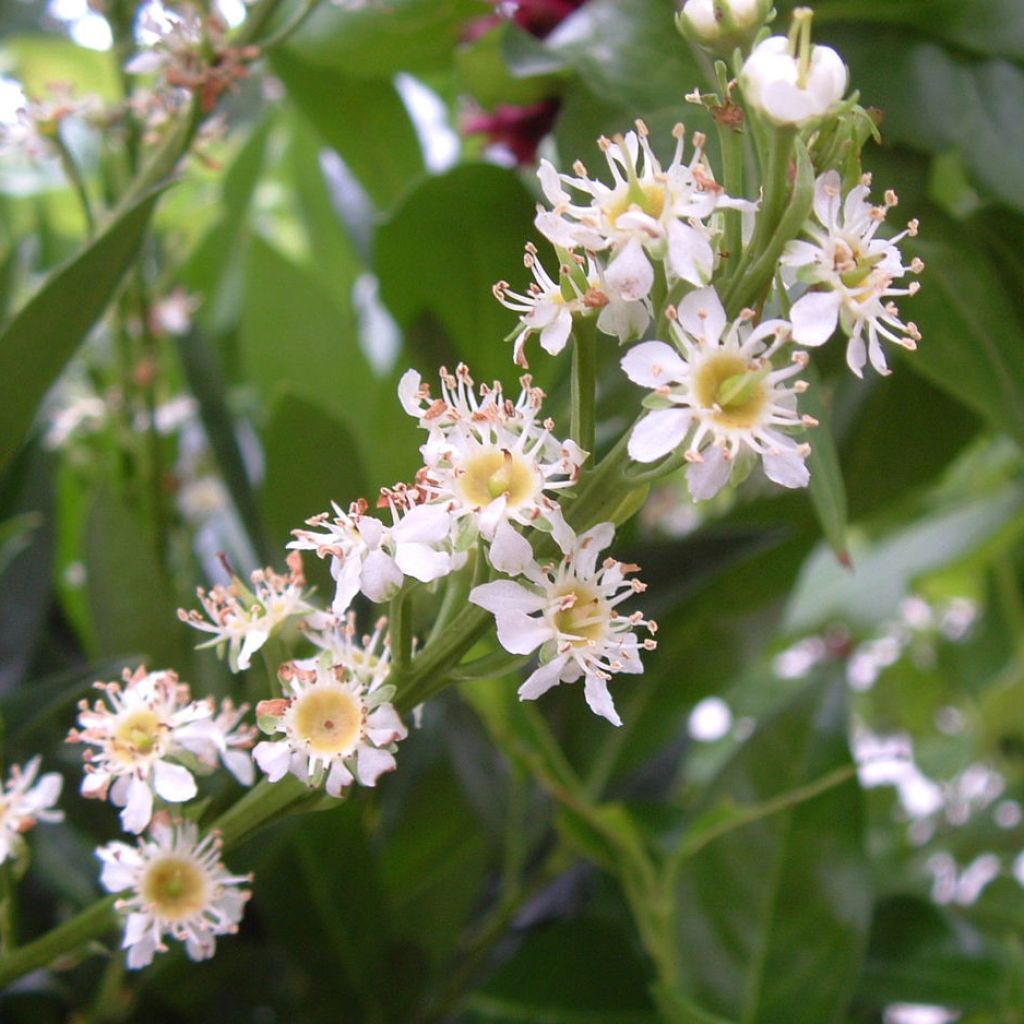

Prunus laurocerasus Otto Luyken - Cherry Laurel
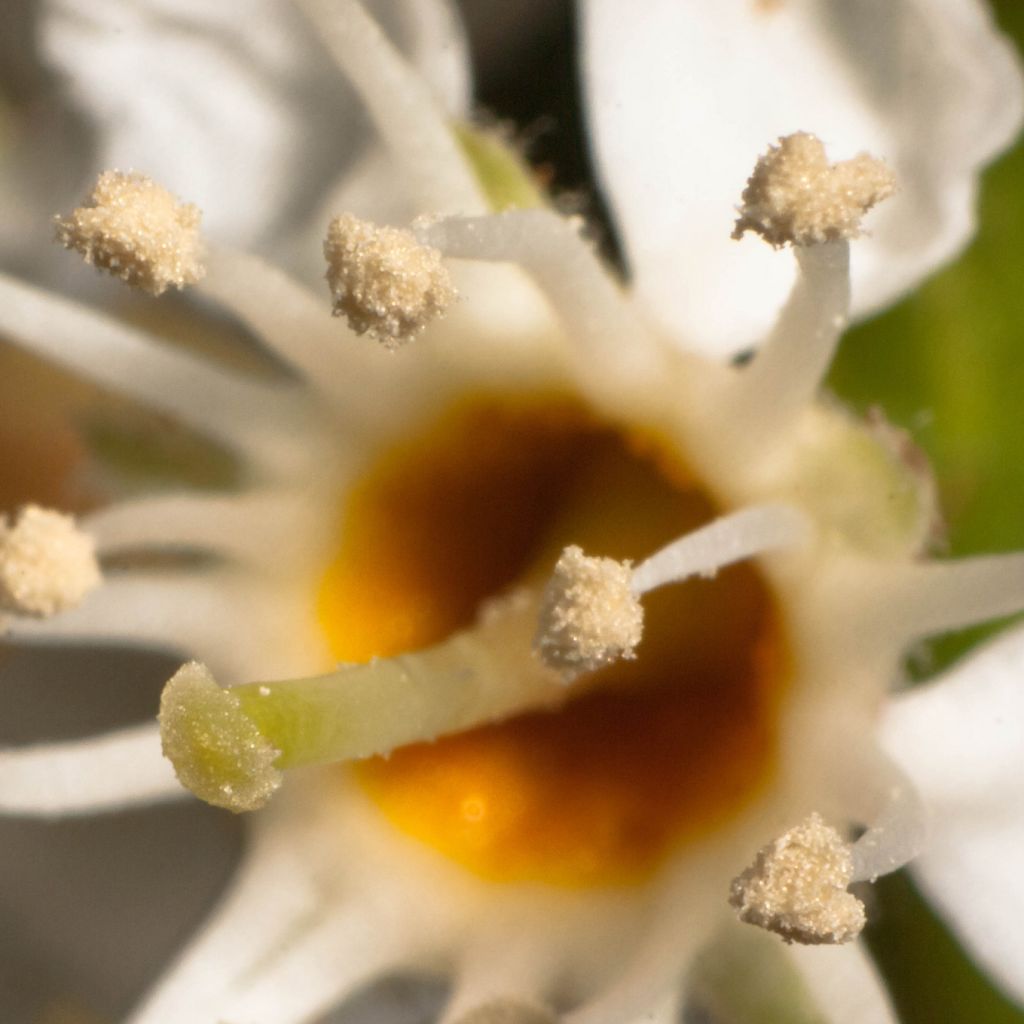

Prunus laurocerasus Otto Luyken - Cherry Laurel
Prunus laurocerasus Otto Luyken - Cherry Laurel
Prunus laurocerasus Otto Luyken
Cherry Laurel, Common Laurel, English Laurel
High-quality and well-suited packaging for the entire order. Very beautiful young plant, vigorous, should recover without difficulty. Very satisfied.
Claudette, 03/10/2022
Order in the next for dispatch today!
Dispatch by letter from 3,90 €.
Delivery charge from 5,90 € Oversize package delivery charge from 6,90 €.
More information
This item is not available in your country.
Shipping country:
Andorra
Austria
Belgium
Bulgaria
Canada
Chile
Croatia
Cyprus
Czechia
Denmark
Estonia
Finland
France
Germany
Greece
Hungary
Iceland
Ireland
Italy
Latvia
Lithuania
Luxembourg
Malta
Monaco
Netherlands
Poland
Portugal
Romania
Slovakia
Slovenia
Spain
Sweden
Switzerland
United Kingdom
Schedule delivery date,
and select date in basket
This plant carries a 24 months recovery warranty
More information
We guarantee the quality of our plants for a full growing cycle, and will replace at our expense any plant that fails to recover under normal climatic and planting conditions.
From 5,90 € for pickup delivery and 6,90 € for home delivery
Express home delivery from 8,90 €.
From 5,90 € for pickup delivery and 6,90 € for home delivery
Express home delivery from 8,90 €.

Would this plant suit my garden?
Set up your Plantfit profile →
Description
Prunus laurocerasus 'Otto Luyken' is a compact and dense variety of cherry laurel. Vigorous, hardy, small, and easy to grow, it is ideally suited for creating splendid low hedges, thanks to its beautiful evergreen and bushy foliage. In spring, clusters of fragrant white flowers appear, followed by toxic berries.
Belonging to the Rosaceae family, Prunus laurocerasus is originally from southeastern Europe and Asia Minor. 'Otto Luyken' is an evergreen variety with a spreading and rounded habit, and dense and vigorous growth, measuring 1.5 m (4.9 ft) in height and width. Its beautiful evergreen foliage is composed of very narrow, upright, dark green leaves, measuring 8 cm to 10 cm (3.1in to 3.9 in) in length. Being shiny on the top and lighter and matt on the underside of the leaves, this foliage is very decorative. In April-May, it serves as a backdrop for an abundant flowering of creamy-white, fragrant flowers carried by short upright clusters 10 cm to 12 cm (3.9 in to 4.7 in) long. In summer, it produces small red ovoid fruits that turn black when ripe. The fruits are toxic. A second flowering occurs in late summer, if the bush is not pruned.
It is undemanding in terms of soil and exposure. Perfectly suited to pruning, it is an ideal variety for creating dense, trimmed, or untrimmed hedges. It provides privacy and acts as a very good sound insulator. When planting, make sure to space each plant 60 cm (23.6 in) apart. It can also be planted with other shrubs, or even as a standalone. It is well suited for container cultivation on a terrace or balcony.
Attention: The leaves, fruits, and all parts of the cherry laurel are toxic. They contain hydrocyanic acid.
Prunus laurocerasus Otto Luyken - Cherry Laurel in pictures
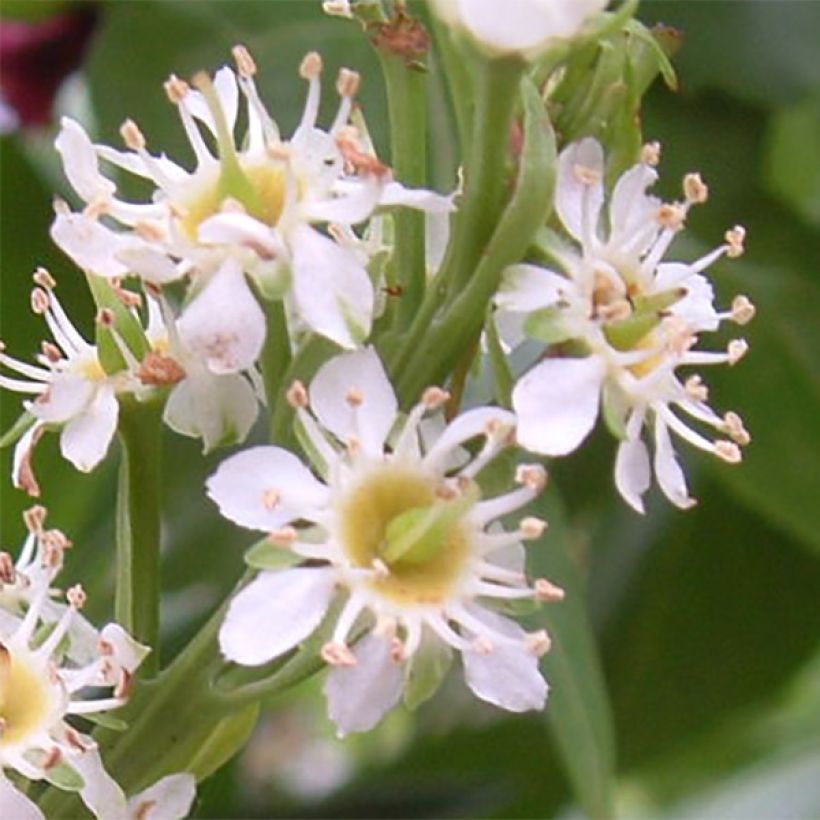

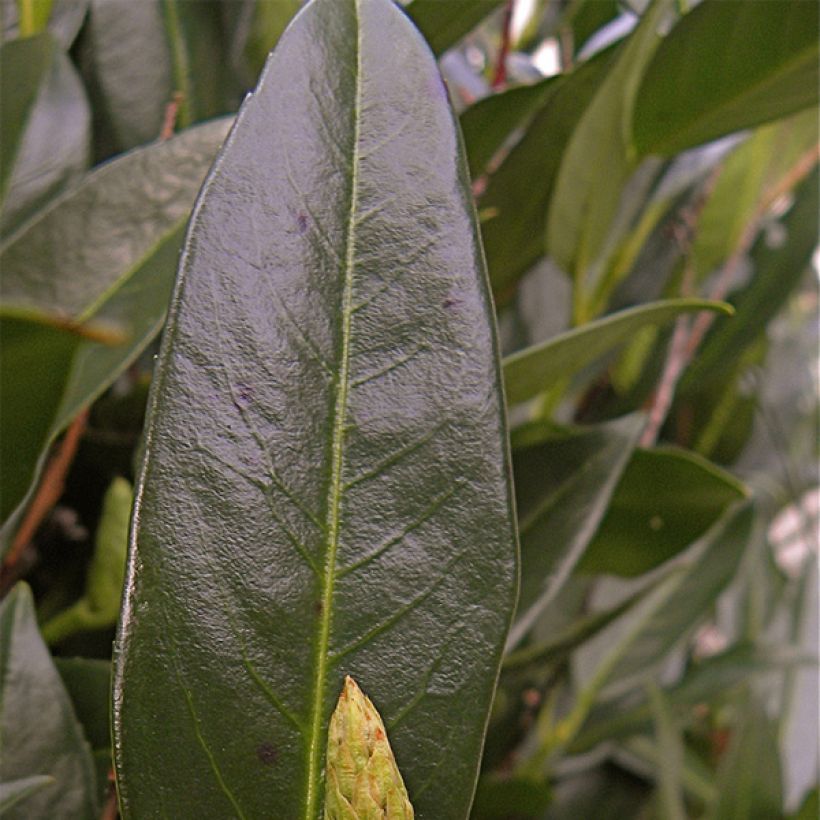

Plant habit
Flowering
Foliage
Botanical data
Prunus
laurocerasus
Otto Luyken
Rosaceae
Cherry Laurel, Common Laurel, English Laurel
Cultivar or hybrid
Other Cherry Laurel - Commun Laurel
Planting and care
Prunus laurocerasus 'Otto Luyken' is very accommodating and easy to cultivate. It thrives in moderately dry to moist ordinary soil without too much limestone. It tolerates all exposures and withstands low temperatures well (around -20° C (-4° F)). Plant in autumn or spring. Water generously once or twice a week to promote establishment. Fairly resistant to diseases, it can however be prone to leaf spot, caused by a fungus. These attacks occur in spring and autumn, resulting in small circular black spots perforating the leaves which turn yellow and fall off. Attacks from aphids, scale insects and powdery mildew can also be a problem in hot weather.
Planting period
Intended location
Care
- , onOrder confirmed
Reply from on Promesse de fleurs
Evergreen shrubs
Haven't found what you were looking for?
Hardiness is the lowest winter temperature a plant can endure without suffering serious damage or even dying. However, hardiness is affected by location (a sheltered area, such as a patio), protection (winter cover) and soil type (hardiness is improved by well-drained soil).

Photo Sharing Terms & Conditions
In order to encourage gardeners to interact and share their experiences, Promesse de fleurs offers various media enabling content to be uploaded onto its Site - in particular via the ‘Photo sharing’ module.
The User agrees to refrain from:
- Posting any content that is illegal, prejudicial, insulting, racist, inciteful to hatred, revisionist, contrary to public decency, that infringes on privacy or on the privacy rights of third parties, in particular the publicity rights of persons and goods, intellectual property rights, or the right to privacy.
- Submitting content on behalf of a third party;
- Impersonate the identity of a third party and/or publish any personal information about a third party;
In general, the User undertakes to refrain from any unethical behaviour.
All Content (in particular text, comments, files, images, photos, videos, creative works, etc.), which may be subject to property or intellectual property rights, image or other private rights, shall remain the property of the User, subject to the limited rights granted by the terms of the licence granted by Promesse de fleurs as stated below. Users are at liberty to publish or not to publish such Content on the Site, notably via the ‘Photo Sharing’ facility, and accept that this Content shall be made public and freely accessible, notably on the Internet.
Users further acknowledge, undertake to have ,and guarantee that they hold all necessary rights and permissions to publish such material on the Site, in particular with regard to the legislation in force pertaining to any privacy, property, intellectual property, image, or contractual rights, or rights of any other nature. By publishing such Content on the Site, Users acknowledge accepting full liability as publishers of the Content within the meaning of the law, and grant Promesse de fleurs, free of charge, an inclusive, worldwide licence for the said Content for the entire duration of its publication, including all reproduction, representation, up/downloading, displaying, performing, transmission, and storage rights.
Users also grant permission for their name to be linked to the Content and accept that this link may not always be made available.
By engaging in posting material, Users consent to their Content becoming automatically accessible on the Internet, in particular on other sites and/or blogs and/or web pages of the Promesse de fleurs site, including in particular social pages and the Promesse de fleurs catalogue.
Users may secure the removal of entrusted content free of charge by issuing a simple request via our contact form.
The flowering period indicated on our website applies to countries and regions located in USDA zone 8 (France, the United Kingdom, Ireland, the Netherlands, etc.)
It will vary according to where you live:
- In zones 9 to 10 (Italy, Spain, Greece, etc.), flowering will occur about 2 to 4 weeks earlier.
- In zones 6 to 7 (Germany, Poland, Slovenia, and lower mountainous regions), flowering will be delayed by 2 to 3 weeks.
- In zone 5 (Central Europe, Scandinavia), blooming will be delayed by 3 to 5 weeks.
In temperate climates, pruning of spring-flowering shrubs (forsythia, spireas, etc.) should be done just after flowering.
Pruning of summer-flowering shrubs (Indian Lilac, Perovskia, etc.) can be done in winter or spring.
In cold regions as well as with frost-sensitive plants, avoid pruning too early when severe frosts may still occur.
The planting period indicated on our website applies to countries and regions located in USDA zone 8 (France, United Kingdom, Ireland, Netherlands).
It will vary according to where you live:
- In Mediterranean zones (Marseille, Madrid, Milan, etc.), autumn and winter are the best planting periods.
- In continental zones (Strasbourg, Munich, Vienna, etc.), delay planting by 2 to 3 weeks in spring and bring it forward by 2 to 4 weeks in autumn.
- In mountainous regions (the Alps, Pyrenees, Carpathians, etc.), it is best to plant in late spring (May-June) or late summer (August-September).
The harvesting period indicated on our website applies to countries and regions in USDA zone 8 (France, England, Ireland, the Netherlands).
In colder areas (Scandinavia, Poland, Austria...) fruit and vegetable harvests are likely to be delayed by 3-4 weeks.
In warmer areas (Italy, Spain, Greece, etc.), harvesting will probably take place earlier, depending on weather conditions.
The sowing periods indicated on our website apply to countries and regions within USDA Zone 8 (France, UK, Ireland, Netherlands).
In colder areas (Scandinavia, Poland, Austria...), delay any outdoor sowing by 3-4 weeks, or sow under glass.
In warmer climes (Italy, Spain, Greece, etc.), bring outdoor sowing forward by a few weeks.
